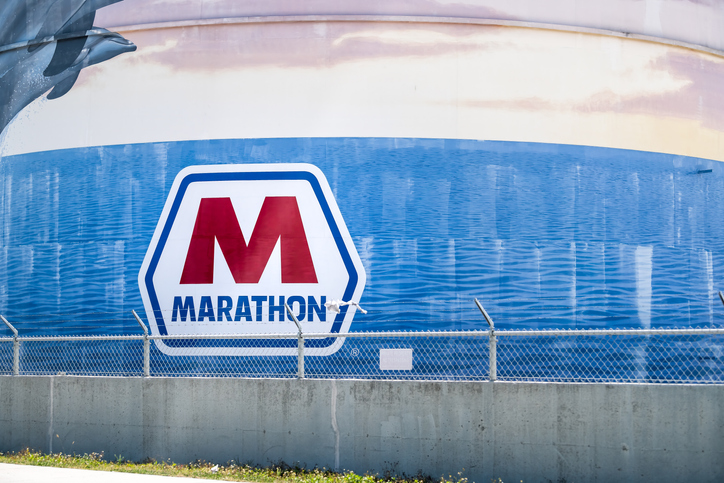
Federal safety regulators are investigating the death of a contractor following a tragic electrical accident at Marathon Oil’s Galveston Bay refinery in Texas City, Texas.
Deceased Contractor Worked for Excel Modular Scaffold
The February 28th accident occurred shortly before 5:00 p.m.
The deceased worker was apparently setting up scaffolding at the refinery’s resid hydrotreater, one of several units at the facility being overhauled, when he somehow made contact with an electrical conduit.
The 25-year-old man was transferred to an undisclosed medical facility, where he later died. While his name has not been released, sources told Reuters that he worked for Excel Modular Scaffold, a privately held company located in Deer Park, Texas.
“Our top priority is safety at our facilities, and an investigation will be conducted to determine the cause of the accident,” Marathon said in a statement. “We extend our deepest condolences to the family and friends of the deceased individual and are providing support to other members of our team during this difficult time.”
Preventing Workplace Electrocutions
According to the U.S. Bureau of Labor Statistics, exposure to electricity was responsible for 152 workplace fatalities in 2021, an increase of 26 compared to the prior year. With electrical equipment being a common sight in any workplace, preventing electrocutions is crucial, even when workers aren’t routinely handling high-voltage equipment.
Some precautions employers should take include:
- Use Only Well-Insulated Cables: Use appropriate electrical cables with thick, resilient insulation. Periodically replace old cables with new, well-insulated lines.
- Protect Cables with Conduits: Any job site located outdoors or with many cables onsite should run all lines through protective conduits to ensure they’re organized and safe from hazards. Conduits able to withstand temperatures between -58 and 392 F are ideal for outdoor workplaces. Using conduits in indoor areas will keep cables in one place, safe from crushing or pinching.
- Know Where Electrical Lines Are: Workers digging or excavating outdoors should know where electrical lines are and avoid them as much as possible. Call 811 before work begins to request that the approximate location of any buried utility lines be marked. Crews should give these spots as much distance as their work will allow.
- Check For and Report Electrical Hazards: Employees should be required to check for electrical hazards, such as wiring error or exposed wire, before working with or around any electrical equipment. Any issues should be reported to the appropriate personnel so they can be corrected before work begins.
- Provide Appropriate PPE: Any employee who works with or near wires should be required to wear appropriate shock-resistant Personal Protective Equipment, including rubber gloves, insulated clothing, and protective eyewear. PPE should have the appropriate voltage rating and be inspected before each use for tears or worn spots that could jeopardize a worker’s safety.
- Provide Appropriate Training: Workers should receive training on electrical threats and how to spot and prevent them, with periodic refreshers provided to employees who regularly work with high-voltage equipment.
Undefeated Texas Refinery Accident Lawyers: Call 1-888-603-3636 or Click Here for a Free Consult
Our Undefeated Refinery Accident Lawyers are investigating the fatal electrocution at Marathon’s Galveston Bay Refinery in Texas City and will post an update when more information becomes available.
In addition to being undefeated, our attorneys have won Billions – including the Largest Refinery Accident Recoveries in U.S. History and the #1 Largest Verdicts and Settlements in our opponents’ corporate histories– for workers and families across Louisiana, Texas, and New Mexico.
If you or a loved one were injured or tragically killed in a plant or refinery accident, please call 1-888-603-3636 or click here to fill out our confidential contact form.
Our Refinery Accident Lawyers will answer your questions, explain your rights, and provide the information you need to make the best decision for your family.
All consultations are free, and you won’t pay us a dime unless we win your case.